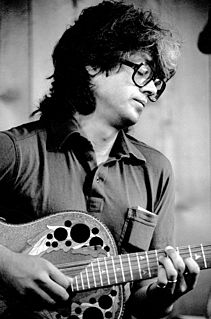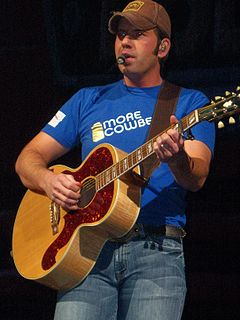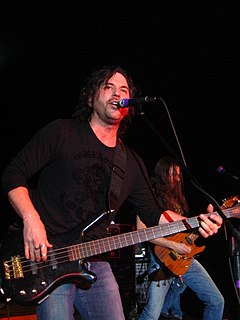A Quote by Kemp Muhl
Sean and I are fighting so many cliches, it's funny. But ultimately we just want to play people the songs we wrote while we were in our pajamas, in love.
Related Quotes
Beware of clichés. Not just the clichés that Martin Amis is at war with. There are clichés of response as well as expression. There are clichés of observation and of thought - even of conception. Many novels, even quite a few adequately written ones, are clichés of form which conform to clichés of expectation.
And I thought about how many people have loved those songs. And how many people got through a lot of bad times because of those songs. And how many people enjoyed good times with those songs. And how much those songs really mean. I think it would be great to have written one of those songs. I bet if I wrote one of them, I would be very proud. I hope the people who wrote those songs are happy. I hope they feel it's enough. I really do because they've made me happy. And I'm only one person.
There was nothing that I ever did, no conscious effort to do one kind of behavior or another, I can't explain what it was, but I can explain that the thinking of the time was that we didn't want to emulate our heroes. That wasn't kosher. 'Don't try to play the old cliches, play like yourself' - that's what people were saying
Love songs come in many guises and are seemingly written for many reasons – as declarations or to wound – I have written songs for all of these reasons – but ultimately the love songs exist to fill, with language, the silence between ourselves and God, to decrease the distance between the temporal and the divine.
In a way, you normalize your own childhood to yourself, so I never thought about how much I wrote as a kid. So I was there, confronted with it - so many notebooks, so many tiny plays. Every week we put on a play. We had a big futon, so my sister and I would use the futon as our stage, and I wrote little skits and made her faint because I found it so funny.
I think people take Blink-128 more seriously now than they did before. And it's largely our fault because we called our records Enema of the State and Take Off Your Pants and Jacket. We were always kind of the underdogs, especially critically. People wrote us off as this joke band. But the people who listened to Blink knew that we were silly and whatever, but we wrote songs about divorce and suicide and depression. Those kids that were listening to Blink are now the ones that control all these outlets that used to just write us off.
Just because I write some songs about bad women, though, that doesn't mean I hate women. I've written songs that show great love and respect for women too. Songs that talk about strong, upstanding women and their pain. I have women working on my music. They understand where I'm coming from. So does my mama. I always play my music for her before it comes out. Why do you think I wrote "Dear Mama"? I wrote it for my mama because I love her and I felt I owed her something deep.
What people really want is not to make something funny, but to make something amusing - which, in many ways, is the opposite of funny. To amuse someone is to eliminate discomfort and awkwardness, kind of like a massage for the brain, while to be funny is to point out awkwardness and discomfort. Everyone thinks they want funny, but they really want amusement.
I would argue, for perspective's sake, that the arc of a really literary work is precisely that it both intensely reflects, and simultaneously transcends the conditions of its making. I would say that is the difference between literature and other kinds of writing. That is what the literary is - it ultimately doesn't matter what his circumstances were. And the thing that you were just saying about being sympathetic to Brontë and the fact that she could only write what she wrote when she wrote it... that's true. But look at that novel, which means so much to so many people.
So I realized when I was successful in a piece, it was because I didn't abandon a notion early on what it ought to be, and I let it take me along. So I've had songs that started out as being about the environment and ended up being love songs and love songs that ended up being about the environment. I've had things that I thought would be a poem and realized that it was just too big for that. I've got to do something larger and it became a play. I wrote one poem that started a whole play.




































